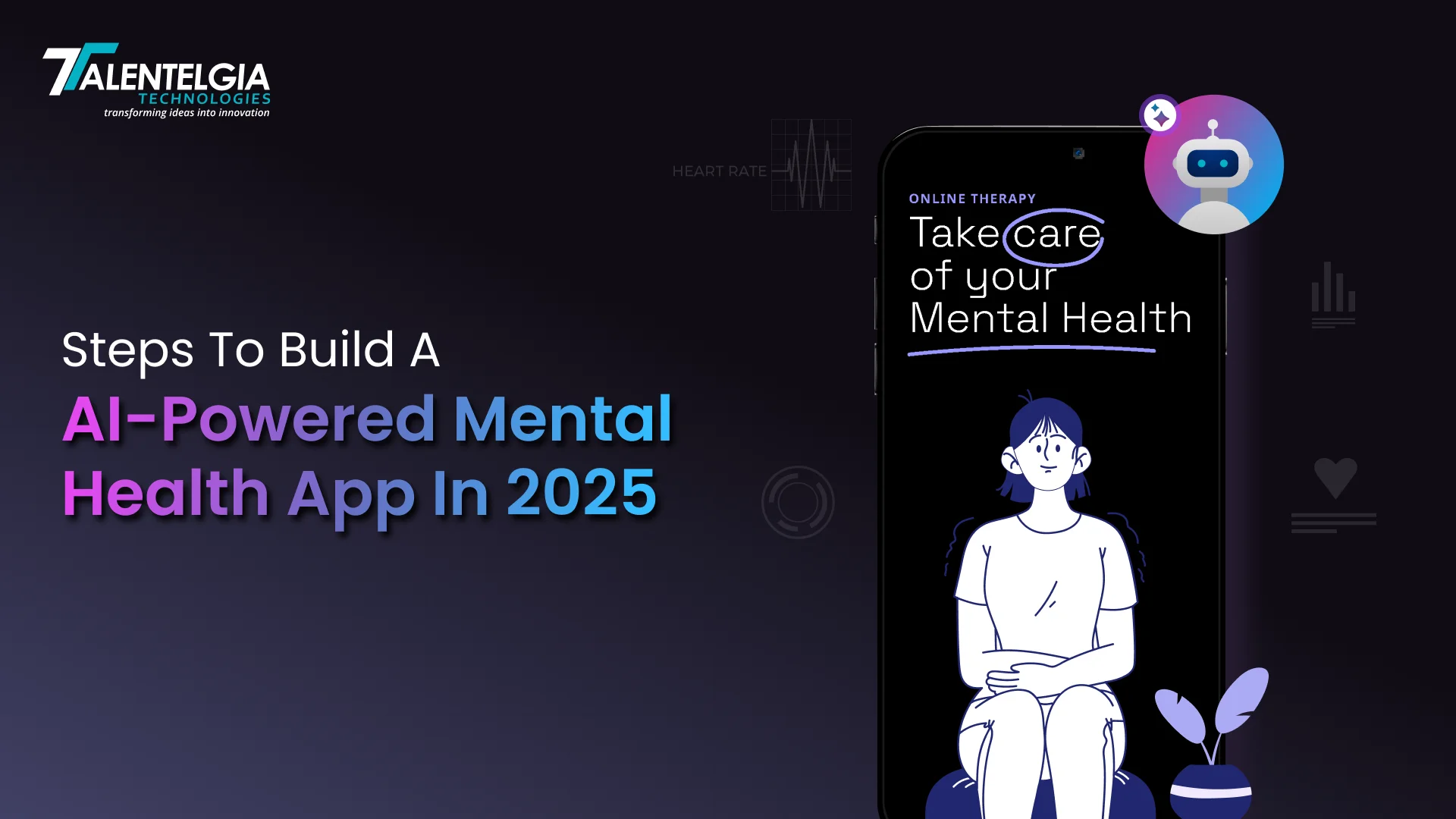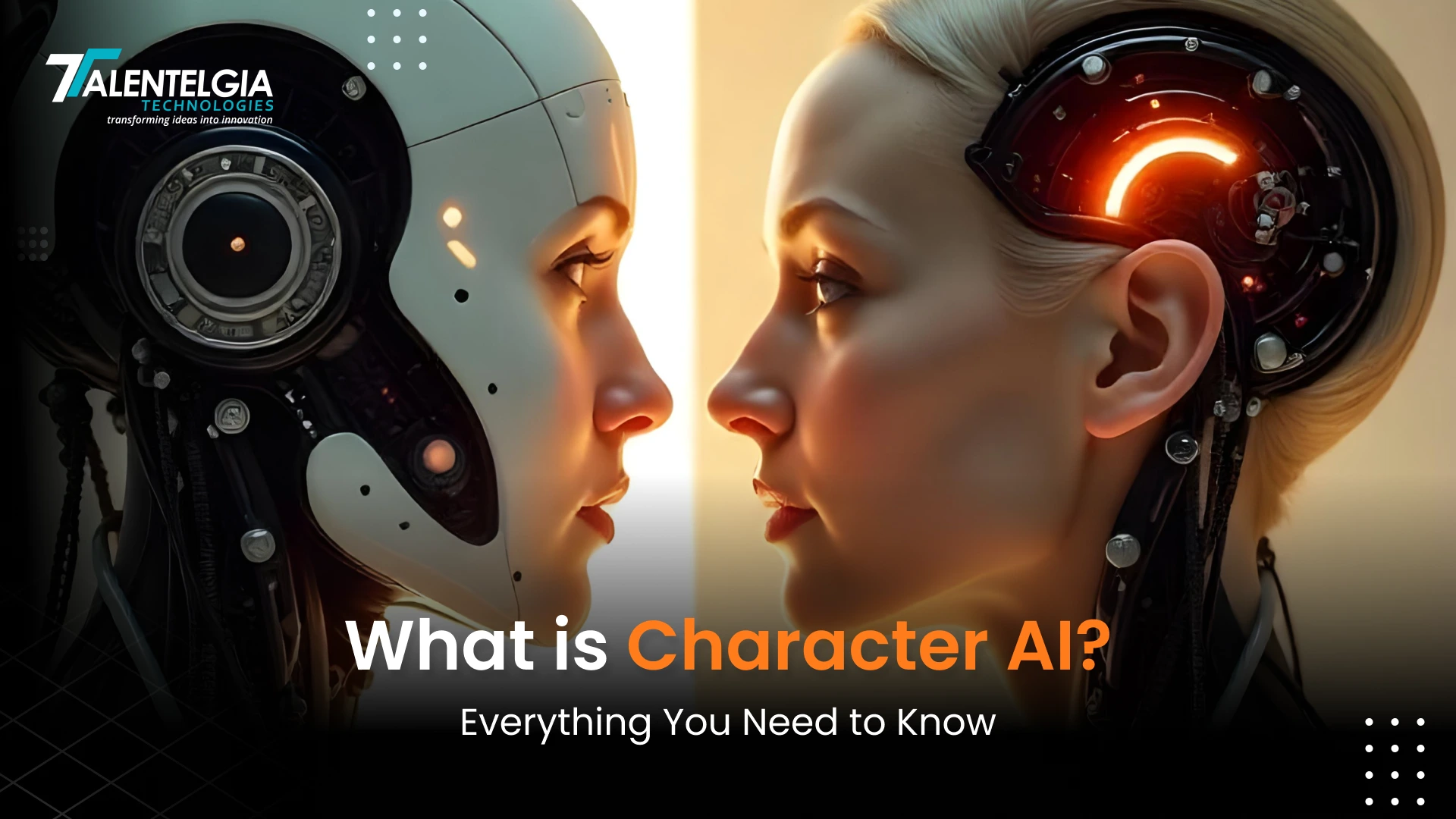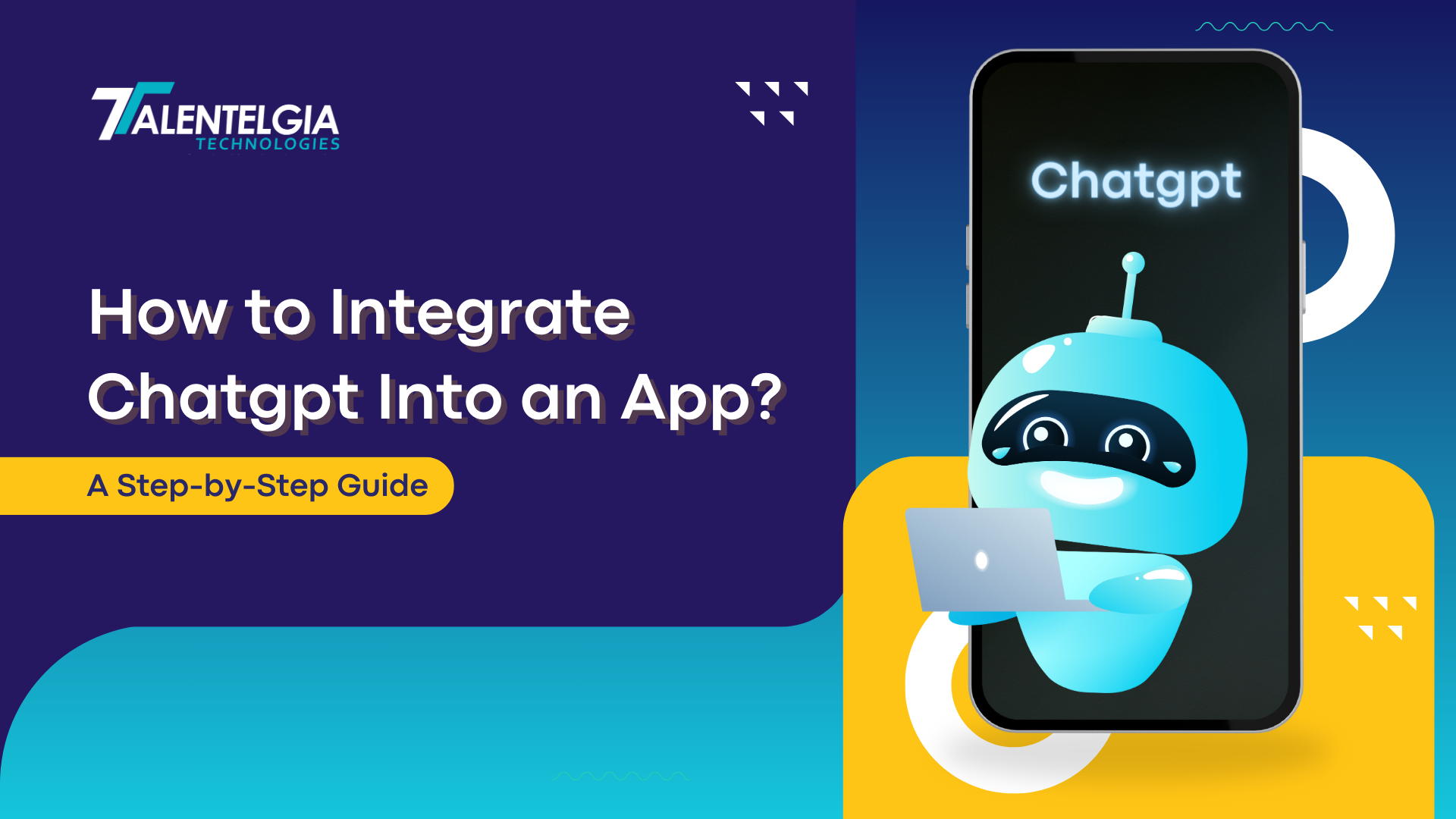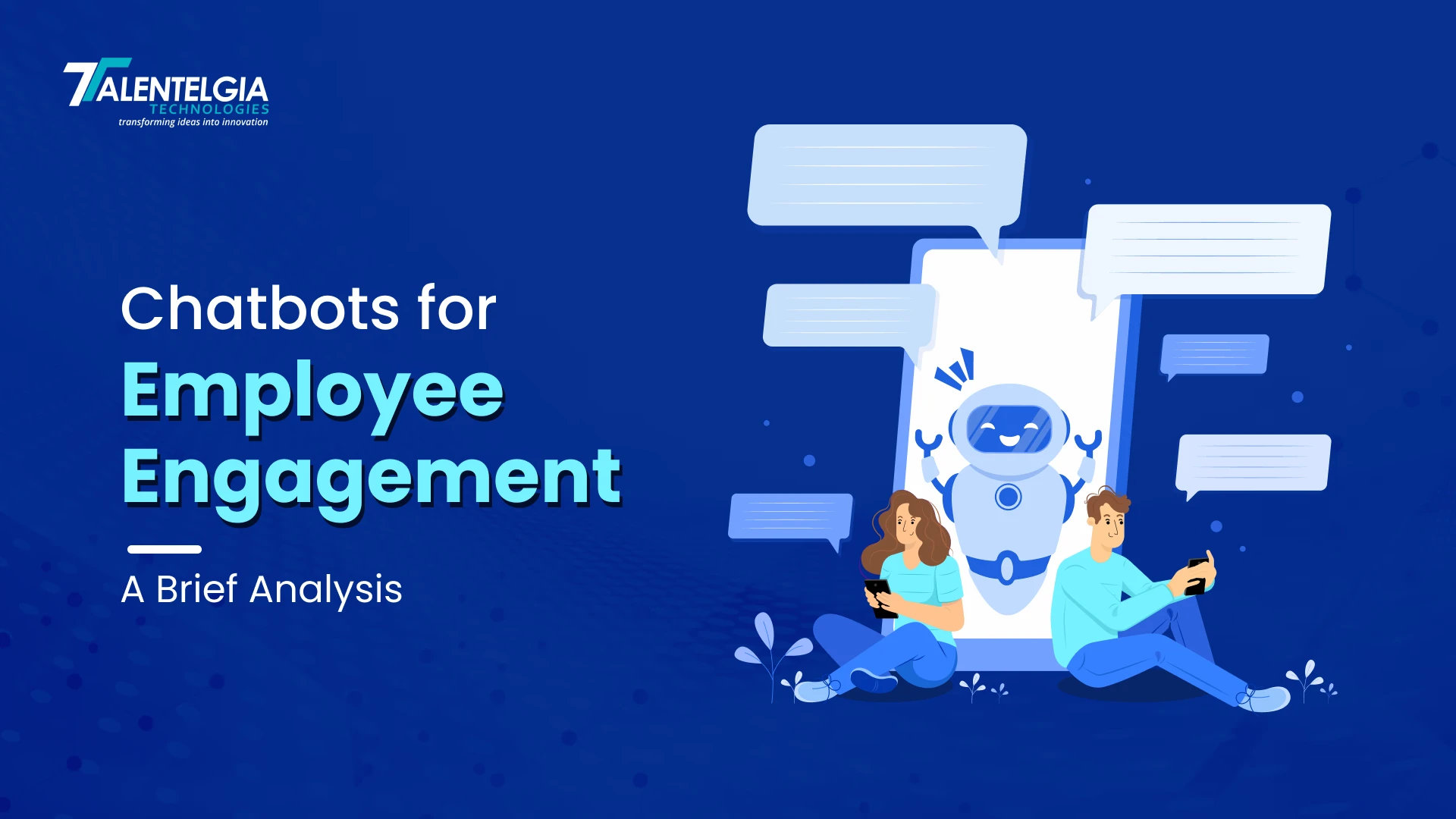In 2025, an estimated one billion people globally, about 12% of the world population, are currently dealing with mental health problems like anxiety, depression, and bipolar disorder, as per a report by the World Health Organization. Despite this mounting crisis, access to professional treatment is limited or unavailable as workforce shortages and stigma bar millions from receiving care. According to the World Economic Forum, the global economy loses as much as $1 trillion every year due to mental illness not being treated effectively or at all, further reinforcing demand for scalable and technology-based solutions.
That growing gulf is where artificial intelligence (AI) comes in as a transformative friend. Mental health apps like Wysa and Replika are transforming the way people seek emotional support, offering 24/7 access to private text conversations with chatbots and sentiment analysis engines. Platforms like these, often built through healthcare app development service providers, offer evidence-based cognitive behavioral tools and emotional resources at a fraction of the cost of in-person therapy. By combining technology and empathy, AI-driven mental health solutions are making the future of mental wellness one that is personalized, stigma-free, and universally accessible.
In this blog, we will talk about the need for mental health apps, steps to build an AI-powered mental health app, and the average cost of building an AI-enabled mental health application in 2025.
Why Building an AI-Enabled Mental Health App Is Critical Now?
Market Expansion and Revenue Potential
The AI mental health app market is growing worldwide, to a possible USD 1.82 billion by 2025, and possibly expanding at an astounding CAGR of 33.8% over the next decade to follow. The wider mental health app sector will be worth USD 7.98 billion in 2025, and is projected to more than double by 2029 as digital therapy proliferates and self-help app use becomes the norm. And for developers and investors, this spike represents a tremendous mental wellness startup opportunity as AI therapy app development can help fill an acute need everywhere.
Increased User Adoption and App Store Control
Users continue to adopt digital therapy solutions at an unprecedented rate, with apps such as Wysa, Woebot, BetterHelp, and Headspace driving global downloads on both iOS and Android. A post-pandemic emphasis on mental health awareness and personalization preferences is driving continued app usage to access AI-powered therapy solutions as the preferred option for 24/7, always-on emotional support and chatbot therapy.
Confidence in Digital Mental Health Among Investors and Institutions
Investors are keen and investing heavily in AI-integration services throughout healthcare, with substantial funding directed towards startups developing healthcare AI apps that focus on preventative and diagnostic mental health care. Governments and insurers are backing AI digital treatment reimbursements, such as new US Medicare codes, to make the financials of scaling AI-driven therapy tools work.
Rising Discontinuities of Innovation, and Opportunities for the Future
Despite the emergence of players including BetterHelp and Calm, there are still big opportunities in modeling emotional intelligence, voice-based empathy training, and multilingual chatbots for developing countries. Developers of AI therapy apps that are able to combine voice sentiment recognition, real-time emotion analytics, and culturally-sensitive CBT models have a good opportunity to tap into underserved markets and stand out in this high-growth sector.
Step By Step Guide To Build AI Powered Mental Health Application
Developing an effective AI-powered mental health app requires a systematic approach and interplay between technical aspects, ethical considerations, and user-centered design. Follow this roadmap to successfully create apps with value in a hyper-competitive market that take advantage of AI business solutions as well as healthcare app development services.
Step 1: Articulate Your Primary Mental Health Use Case
Every successful high-impact mental health app starts with a narrowly focused problem. General health apps tend to have difficulty retaining users, while those that address burnout in professionals, postpartum emotional support, or CBT for anxiety hit home.
Why it matters: Early establishment of your use case influences your tech stack, AI integration approach, and compliance needs.
Step 2: Do Your Market Analysis and Compliance Planning at the Same Time
Learn what features work in the market by dissecting apps like Wysa, Calm, and BetterHelp. Analyze what users have to say, in forums and update logs.
At the same time, be regulatory compliant. In the U.S., you have to adhere to HIPAA when dealing with health data. Begin planning validation and regulation concurrently; these tramlines run side by side.
Pro tip: Incorporate compliance considerations into your healthcare app development services from day one to prevent costly rework.
Step 3: Prioritize UX for Emotional Safety
Users might be in an emotionally fragile state when they get there. Make your UX/UI design calming, intuitive, and available.
- Do not use bright colors or intricate designs.
- Trust starts with being able to onboard without having to identify.
- Make navigation simple yet purposeful.
Impact: Increased user adoption and retention rates, critical for AI integration services that depend on engagement KPIs.
Step 4: Choose a Scalable Tech Stack and Reliable AI Tools
A solid foundation means your app can grow safely and efficiently. Typical choices:
- Frontend: React Native (cross-platform)
- Backend: Node.js or Django
- AI Tools: GPT-4, BERT, or Dialogflow for chat; sentiment analysis, personalized recommendation engines
Focus on technology that aligns with your use case, not just trends. Leveraging AI business solutions ensures scalable, secure, and responsive experiences.
Step 5: Build a Focused MVP
Your MVP should do one thing well, and it will be far from perfect. Suggested features:
- AI-powered mental health chatbot
- Mood journaling with analytics
- Emotional check-ins or reminders
- Secure, HIPAA-compliant user profile
Avoid feature overload. Leverage your MVP to test assumptions before scaling up, healthcare app development service practices.
Step 6: Integrate AI Responsibly
AI has the potential to improve mental health support, as long as it’s used ethically.
- Train on Evidence-Based Models (like CBT or ACT).
- Set up a fallback in cases where AI doesn’t have a response.
- Keep the sensitive data encrypted and limit access.
Step 7: Evaluate with live users and clinician consultants
Product testing should measure more than just function:
- Interview stress and anxiety users for feedback.
- Seek empirical verification of treatment efficacy from mental health professionals specifically licensed to provide therapy.
- You can A/B test onboarding flows and observe how the responses feel.
This feedback loop reinforces your AI integration and maintains clinical validity.
Step 8. Launch Gradually with Smart Monitoring
Avoid releasing every feature at once. Start small and track metrics:
- User retention
- Chat drop-offs
- Peak usage times
- Sentiment trends
Analytics from your early adopters guide product roadmap improvements, a key principle in AI business solutions for mental health apps.
Step 9. Maintain Compliance and Continuously Improve AI
AI models and regulations evolve. Regular updates ensure relevance and safety:
- Retrain AI on anonymized data (with consent)
- Maintain audit logs of AI decisions
- Conduct periodic compliance audits (HIPAA, GDPR, local laws)
- Include human fail-safes for AI-driven interactions
Ongoing refinement is crucial for sustainable healthcare app development services.
Step 10. Long-Term Planning: Monetization and Scalability
Start from the outset, defining a sustainable business model:
- Freemium with premium features
- Subscription tiers
- B2B relationships with employers/schools
- Clinic or wellness platform licensing
Your monetization plan influences design and AI integration offerings for long-term growth and impact.
Also Read:- Popular Types of Healthcare Software In 2025
Understanding the Development Costs of an AI Mental Health App In 2025
Building a high-quality AI-powered mental health app involves several cost-driving factors, including complexity, features, integrations, AI model training, and data compliance. Understanding the Cost of Implementing AI in Healthcare provides valuable insight into similar challenges faced when developing AI-driven wellness solutions. On average, the development cost for an AI mental wellness app in 2025 ranges between $80,000 and $250,000, depending on your project’s scale and technology stack.
Below is a detailed cost breakdown to help you plan your budget effectively:
| Component | Estimated Cost (USD) |
| UI/UX Design | $8,000 – $15,000 |
| Frontend & Backend Development | $30,000 – $60,000 |
| AI/ML Integration | $25,000 – $70,000 |
| HIPAA Compliance & Security | $10,000 – $20,000 |
| Testing & Quality Assurance (QA) | $5,000 – $10,000 |
| Project Management | $5,000 – $15,000 |
| Total Estimated Range | $80,000 – $250,000+ |
Conclusion
As the demand for accessible, affordable, and stigma-free mental healthcare accelerates, AI-powered solutions are emerging as the cornerstone of digital wellness innovation. Building an AI mental health app requires more than just technology; it demands empathy, compliance, and purposeful design. By partnering with an experienced AI software development company, businesses can leverage cutting-edge AI chatbot development services to create personalized, secure, and clinically informed mental wellness platforms.
Whether you’re launching a niche therapy app or scaling a global digital health solution, integrating ethical AI, strong UX, and robust compliance practices ensures that your product not only meets user needs but also contributes to a more connected, emotionally resilient world.


 Healthcare App Development Services
Healthcare App Development Services
 Real Estate Web Development Services
Real Estate Web Development Services
 E-Commerce App Development Services
E-Commerce App Development Services E-Commerce Web Development Services
E-Commerce Web Development Services Blockchain E-commerce Development Company
Blockchain E-commerce Development Company
 Fintech App Development Services
Fintech App Development Services Fintech Web Development
Fintech Web Development Blockchain Fintech Development Company
Blockchain Fintech Development Company
 E-Learning App Development Services
E-Learning App Development Services
 Restaurant App Development Company
Restaurant App Development Company
 Mobile Game Development Company
Mobile Game Development Company
 Travel App Development Company
Travel App Development Company
 Automotive Web Design
Automotive Web Design
 AI Traffic Management System
AI Traffic Management System
 AI Inventory Management Software
AI Inventory Management Software
 AI Software Development
AI Software Development  AI Development Company
AI Development Company  AI App Development Services
AI App Development Services  ChatGPT integration services
ChatGPT integration services  AI Integration Services
AI Integration Services  Generative AI Development Services
Generative AI Development Services  Natural Language Processing Company
Natural Language Processing Company Machine Learning Development
Machine Learning Development  Machine learning consulting services
Machine learning consulting services  Blockchain Development
Blockchain Development  Blockchain Software Development
Blockchain Software Development  Smart Contract Development Company
Smart Contract Development Company  NFT Marketplace Development Services
NFT Marketplace Development Services  Asset Tokenization Company
Asset Tokenization Company DeFi Wallet Development Company
DeFi Wallet Development Company Mobile App Development
Mobile App Development  IOS App Development
IOS App Development  Android App Development
Android App Development  Cross-Platform App Development
Cross-Platform App Development  Augmented Reality (AR) App Development
Augmented Reality (AR) App Development  Virtual Reality (VR) App Development
Virtual Reality (VR) App Development  Web App Development
Web App Development  SaaS App Development
SaaS App Development Flutter
Flutter  React Native
React Native  Swift (IOS)
Swift (IOS)  Kotlin (Android)
Kotlin (Android)  Mean Stack Development
Mean Stack Development  AngularJS Development
AngularJS Development  MongoDB Development
MongoDB Development  Nodejs Development
Nodejs Development  Database Development
Database Development Ruby on Rails Development
Ruby on Rails Development Expressjs Development
Expressjs Development  Full Stack Development
Full Stack Development  Web Development Services
Web Development Services  Laravel Development
Laravel Development  LAMP Development
LAMP Development  Custom PHP Development
Custom PHP Development  .Net Development
.Net Development  User Experience Design Services
User Experience Design Services  User Interface Design Services
User Interface Design Services  Automated Testing
Automated Testing  Manual Testing
Manual Testing  Digital Marketing Services
Digital Marketing Services 
 Ride-Sharing And Taxi Services
Ride-Sharing And Taxi Services Food Delivery Services
Food Delivery Services Grocery Delivery Services
Grocery Delivery Services Transportation And Logistics
Transportation And Logistics Car Wash App
Car Wash App Home Services App
Home Services App ERP Development Services
ERP Development Services CMS Development Services
CMS Development Services LMS Development
LMS Development CRM Development
CRM Development DevOps Development Services
DevOps Development Services AI Business Solutions
AI Business Solutions AI Cloud Solutions
AI Cloud Solutions AI Chatbot Development
AI Chatbot Development API Development
API Development Blockchain Product Development
Blockchain Product Development Cryptocurrency Wallet Development
Cryptocurrency Wallet Development About Talentelgia
About Talentelgia  Our Team
Our Team  Our Culture
Our Culture 
 Healthcare App Development Services
Healthcare App Development Services Real Estate Web Development Services
Real Estate Web Development Services E-Commerce App Development Services
E-Commerce App Development Services E-Commerce Web Development Services
E-Commerce Web Development Services Blockchain E-commerce
Development Company
Blockchain E-commerce
Development Company Fintech App Development Services
Fintech App Development Services Finance Web Development
Finance Web Development Blockchain Fintech
Development Company
Blockchain Fintech
Development Company E-Learning App Development Services
E-Learning App Development Services Restaurant App Development Company
Restaurant App Development Company Mobile Game Development Company
Mobile Game Development Company Travel App Development Company
Travel App Development Company Automotive Web Design
Automotive Web Design AI Traffic Management System
AI Traffic Management System AI Inventory Management Software
AI Inventory Management Software AI Software Development
AI Software Development AI Development Company
AI Development Company ChatGPT integration services
ChatGPT integration services AI Integration Services
AI Integration Services Machine Learning Development
Machine Learning Development Machine learning consulting services
Machine learning consulting services Blockchain Development
Blockchain Development Blockchain Software Development
Blockchain Software Development Smart contract development company
Smart contract development company NFT marketplace development services
NFT marketplace development services IOS App Development
IOS App Development Android App Development
Android App Development Cross-Platform App Development
Cross-Platform App Development Augmented Reality (AR) App
Development
Augmented Reality (AR) App
Development Virtual Reality (VR) App Development
Virtual Reality (VR) App Development Web App Development
Web App Development Flutter
Flutter React
Native
React
Native Swift
(IOS)
Swift
(IOS) Kotlin (Android)
Kotlin (Android) MEAN Stack Development
MEAN Stack Development AngularJS Development
AngularJS Development MongoDB Development
MongoDB Development Nodejs Development
Nodejs Development Database development services
Database development services Ruby on Rails Development services
Ruby on Rails Development services Expressjs Development
Expressjs Development Full Stack Development
Full Stack Development Web Development Services
Web Development Services Laravel Development
Laravel Development LAMP
Development
LAMP
Development Custom PHP Development
Custom PHP Development User Experience Design Services
User Experience Design Services User Interface Design Services
User Interface Design Services Automated Testing
Automated Testing Manual
Testing
Manual
Testing About Talentelgia
About Talentelgia Our Team
Our Team Our Culture
Our Culture

















 Write us on:
Write us on:  Business queries:
Business queries:  HR:
HR: 





